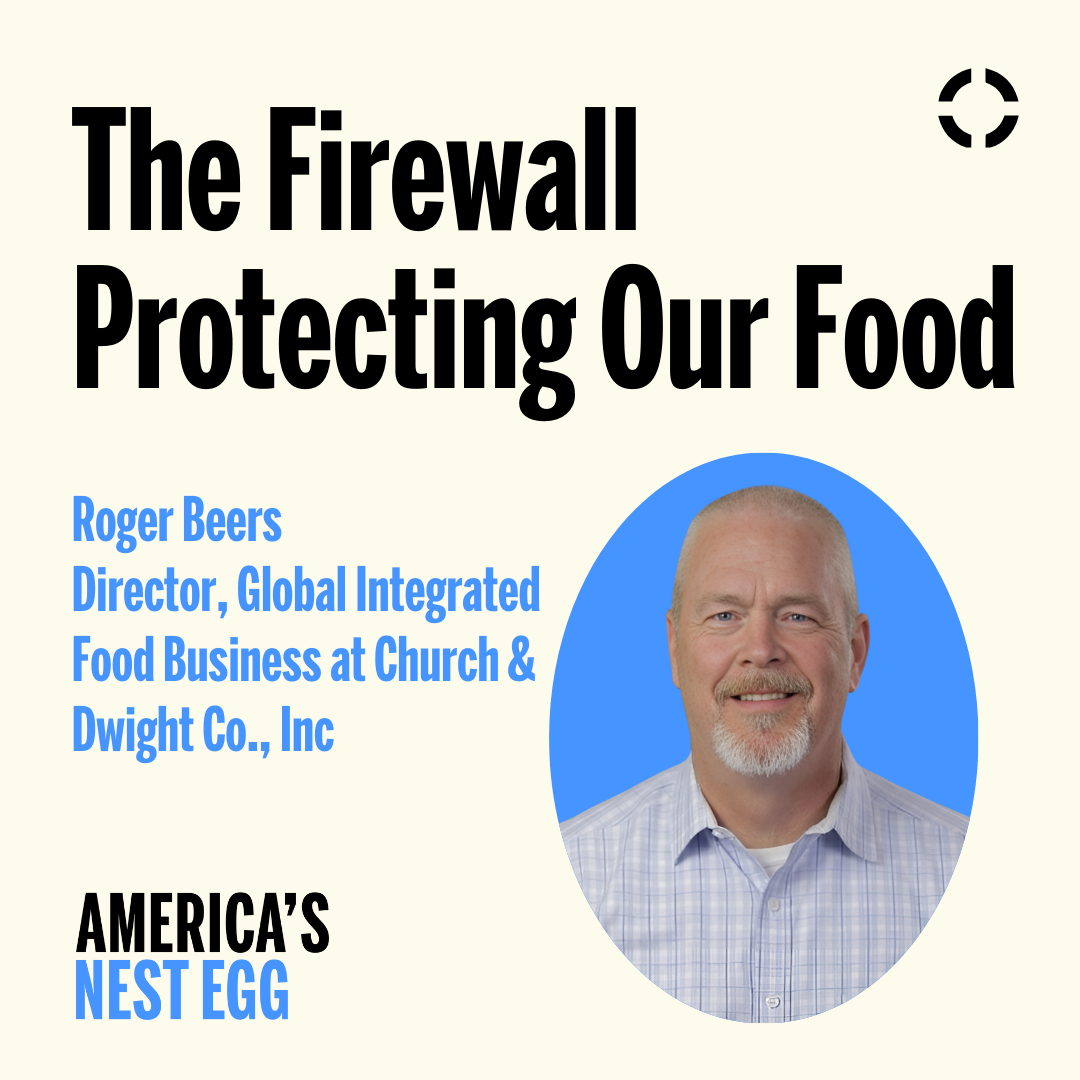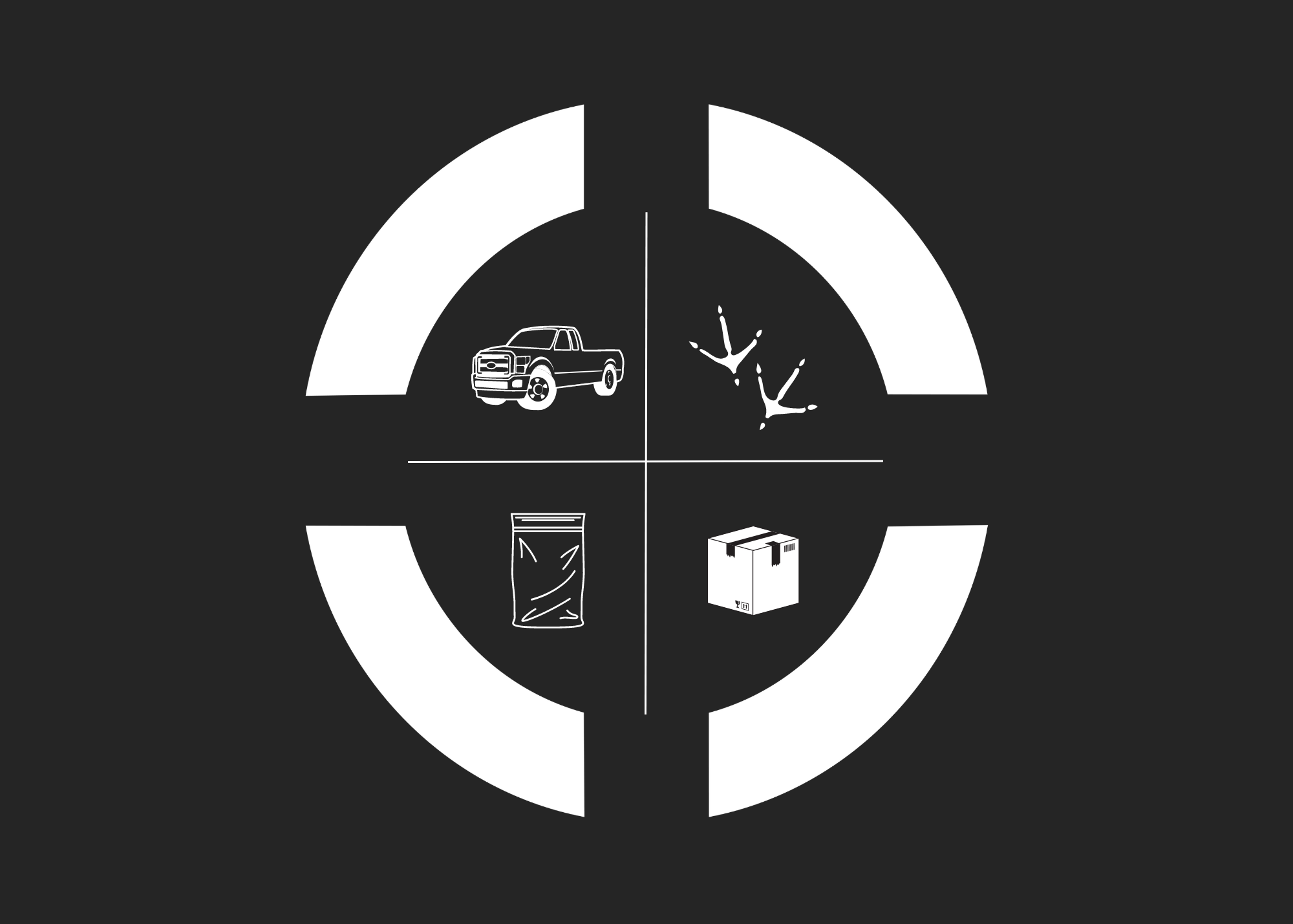In the poultry industry, margins are razor-thin, and every penny spent needs to pull its weight. For too long, poultry companies have leaned on diagnostics and contract labs as a crutch, ticking compliance boxes and relying on gut instinct to make important decisions. But outdated tools and guesswork does not make for a reliable strategy, and more tests aren’t the answer.

Publication
Brian Ronholm Examines Regulatory Policy and Safety
On a new episode of America’s Nest Egg, host and Ancera CEO Arjun Ganesan talks with Brian Ronholm, Director of Food Policy at Consumer Reports.
Ronholm’s career in legislative and regulatory food policy and safety began in 2006 when he served as an Agriculture Appropriations Associate for U.S. House Rep. Rosa DeLauro (CT-03). In 2011, he was appointed Deputy Under Secretary of Food Safety at the U.S.Department of Agriculture where he served for 6 years.
“I sort of joke with folks that I was kind of like the Forrest Gump of food policy and that I just happened to be at the right place at the right time in certain moments of my life,” Ronholm said.
In 2020, Ronholm joined Consumer Reports as Director of Food Policy where he has been focused on emerging technologies and modernization in the food industry.
Food advocacy at Consumer Reports
Consumer Reports may be best known for its review publication, rating products like automobiles and home goods so consumers have a reliable source to better understand their safety and performance. But the company also has an advocacy division that pushes for policies on the state and federal level to strengthen consumer protections.
Ronholm works with Consumer Reports to advocate for the food policies that its readers and subscribers are asking for. Digital metrics like call-to-action responses can help inform their food policy when they are translated into an advocacy strategy that protects consumers.
“For instance, we'll have some articles that have a call to action that says, ‘Sign this petition to urge this company to make this change’ or ‘Urge the FDA to make a change,’ and when they take that additional step, that's certainly a metric that we’ll review and say, ‘Okay, this is something that they find impactful that they enjoy doing.’ We take that information and then develop a strategy for advocacy.”
Top of mind for U.S. consumers on the food supply
Consumers are worried about the availability of food when they go to the store, and making sure that what they bring home won’t make their family sick. Ronholm suggests that these are some of the basic concerns that are widely shared by consumers, but there are many nuances in the discussion of food policy.
“There is also a significant segment that's growing each year of people who want more information about what they're consuming on a daily basis, whether it's how their food is produced, is it local? Is it processed through a kind of a factory farm? Things like that.”
And the demand for more information is growing, especially among younger generations. “They want more transparency, not only from policy makers, but from companies about what's going into the food supply.”
Consumer priorities driving industry expectations
Food chemicals
A topic that transcends party lines, Ronholm describes food chemicals as a “nonpartisan issue,” adding that people want to know about what is in their food, and the lack of publicly available information makes the industry appear self-regulated to some consumers.
“We have a system now where companies are allowed to determine on their own whether a certain chemical is safe and introduce it into our food supply. So it's essentially self-regulated, and people are concerned about that. They want more information about how that's working and why there isn't more transparency.”
Heavy metals
Unlike pathogens like E. coli and Salmonella, Ronholm says it’s difficult to track the long-term impacts of heavy metals absorbed into food through water and soil, which has a lot of consumers worried about their potential health effects.
“What is in our water? What is in our soil that's being absorbed into our foods and ending up maybe increasing the risk of health risks down the line when you have continuous consumption of a particular food, especially for things like heavy metals and chemicals?”
Reflecting on the era of the Food Safety Modernization Act
The Food Safety Modernization Act (FSMA) was signed into law in 2011 with a focus on preventing foodborne illness in the global food system. While the FDA was drafting and implementing the law, Ronholm had a view from Capitol Hill and the USDA as to how FSMA was influencing the food supply chain.
Ronholm saw consumer groups, industry leaders, and academia come together during this time of high-profile outbreaks to implement significant changes to the food safety system to better prevent these outbreaks.
“There were some very high-profile outbreaks in the mid to late 2000s. You had peanut butter, you had a number of fresh produce outbreaks with spinach, romaine lettuce, etc. And so everyone recognized that there was this need to come together and work together to push for this. And that's how it was able to get signed. You had this unique coalition coming together of strange bedfellows, really, to make this happen.”
Now 13 years since FSMA was signed into law, Ronholm says there are still some significant pieces that haven't been implemented, citing resource problems at the FDA.
“There’s this bureaucratic inertia also that's preventing them from working on this and really pushing forward on it,” he said.
Food Safety and Inspection Service fight against Salmonella
During his time at the USDA’s Food Safety and Inspection Service (FSIS), Ronholm helped to implement “test and hold” policies that require producers to test their product and hold it until they receive a negative test before releasing it into commerce. He says he and the Obama Administration helped set the stage for future discussions on combatting foodborne illness like E. coli and Salmonella.
Now an outside advocate, he’s pushing the FSIS to move quickly on new regulatory framework that includes considerations on combatting Salmonella.
“I would encourage them to move faster to get this framework out there so that there can be some sort of foundation that allows us to tackle the Salmonella issue, because it is one that's very frustrating.”
How to anticipate new threats in food safety and supply chains
Threats to the food supply chain come in all shapes and sizes, from microbial diseases to risks of national security, and the emerging market of alternative proteins offers a new pathway for threats to enter the food supply. Ronholm says that in order to anticipate new threats in food safety and supply chains, we need to quickly understand these new technologies and educate consumers.
“There's a lot of that information that may be not as well known to consumers just because it's a relatively new technology. I mean, they understand that it's plant-based and therefore, they're not eating meat. I think in a lot of cases, that's the extent of a consumer's knowledge of the product.”
Ronholm says that watchdog organizations like Consumer Reports should be leading the charge on testing plant-based products and determining if they pose a risk.
Advice on proactive strategies for future food defense
With food in more abundant supply than ever, security is more important than ever. In the face of ongoing threats to the food system, Ronholm sees food defense as “food diligence.”
“Food safety requires constant diligence. Constant work by everyone, by industry, certainly by consumers, regulators, because threats are always evolving. Whether they're pathogen-based, whether they're chemical-based, whether they’re a threat from another nation. There's a lot for us to try to be on top of to make sure that the food supply is secure.”
Ronholm says that industry has a role in developing technologies that can detect emerging threats, and cites the progress of Salmonella detection, which has gone from days to minutes to produce results.
“Think of the possibilities if we're able to continue down this road of being able to detect threats in a more immediate time frame. That gives us a heads up and plenty of lead time to be able to implement prevention strategies that prevents these threats from posing a high risk, both to industry and consumers.”
America’s Nest Egg
The America’s Nest Egg podcast hosts conversations on the poultry industry, biotech, and more. Listen to the full episode with Brian Ronholm.
Subscribe to America’s Nest Egg and join the conversation.










.png)






























